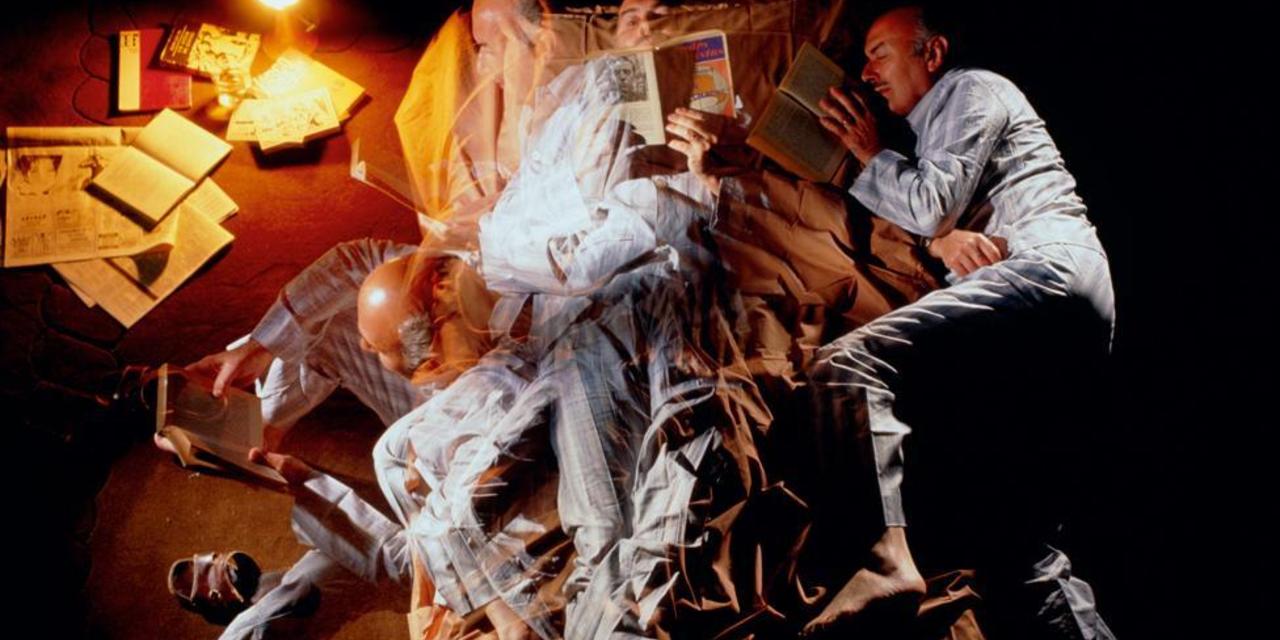Every night most us lie in bed waiting to be abducted by oblivion. All day we exhibit conscious power over our bodies (feed the pigs, floss ass after shower, don’t shit pants at board meeting) but at night we relinquish control to mysterious, subconscious forces that seem to “capture” our minds by surprise. It’s very strange, when you really think about it. One moment we’re thinking various thoughts (I can’t wait to be king, to pee or not to pee, what is the circle of life? when I was a young warthog) and the next thing we know it’s morning, with either a placid sunrise gently tickling our fluttering eyelids or a submarine emergency alert alarm punching our eardrums. Why can’t we ever remember the transition?
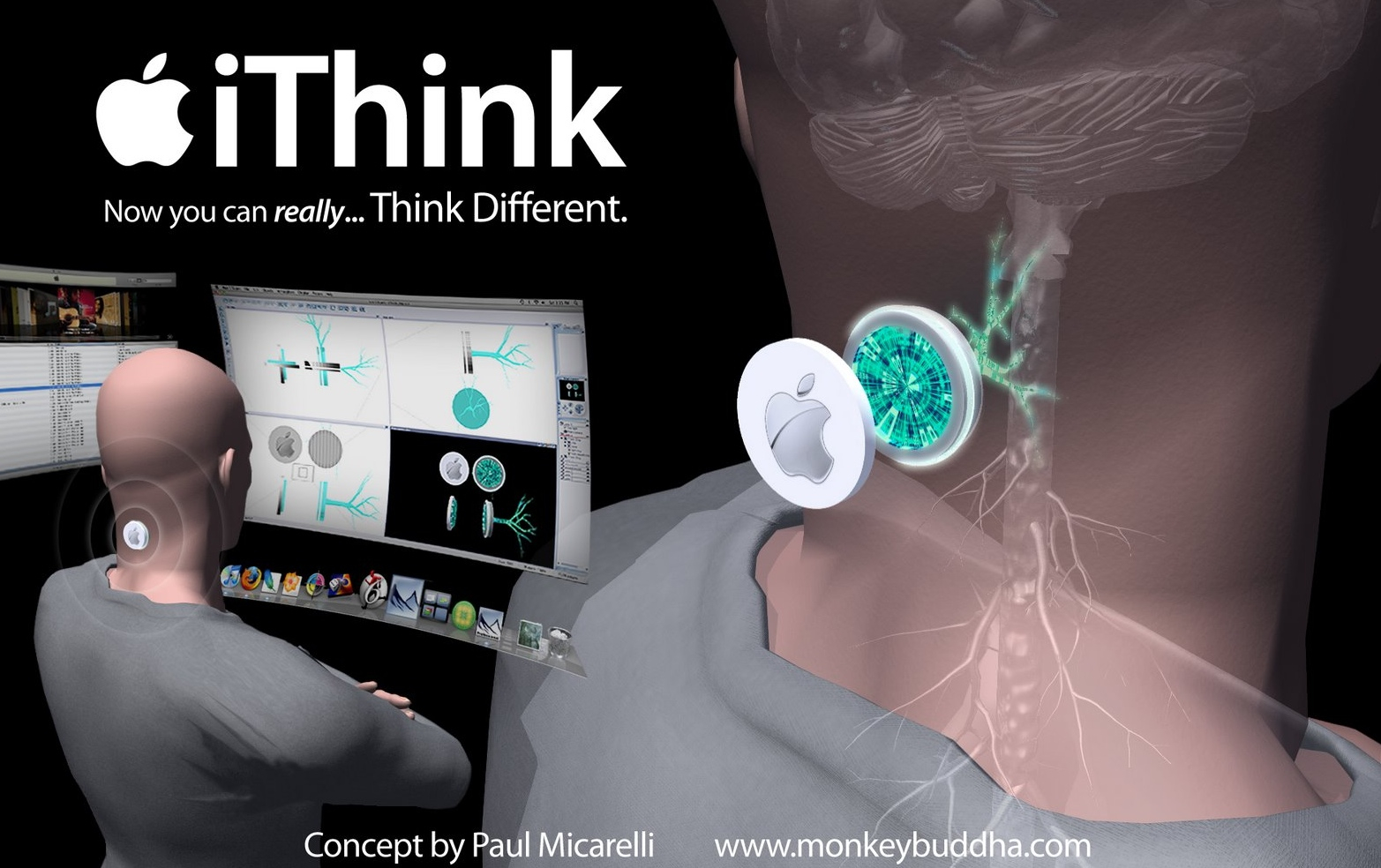

I mean, the hippocampus:
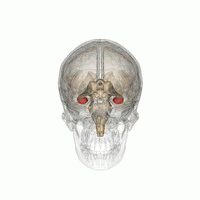
The hippocampus is located beneath the cerebral cortex (brain’s control center/consciousness), is part of the limbic system (emotion, behavior, motivation), and is responsible for memory (long-term, short term, and spatial navigation). In Alzheimer’s disease, the hippocampus is one of the first regions of the brain to experience damage. People with Alzheimer’s often have an inability to form new memories.
The weird name (which is Latin) is derived from the Greek words “horse,” and “seamonster,” because it looks like a seahorse:
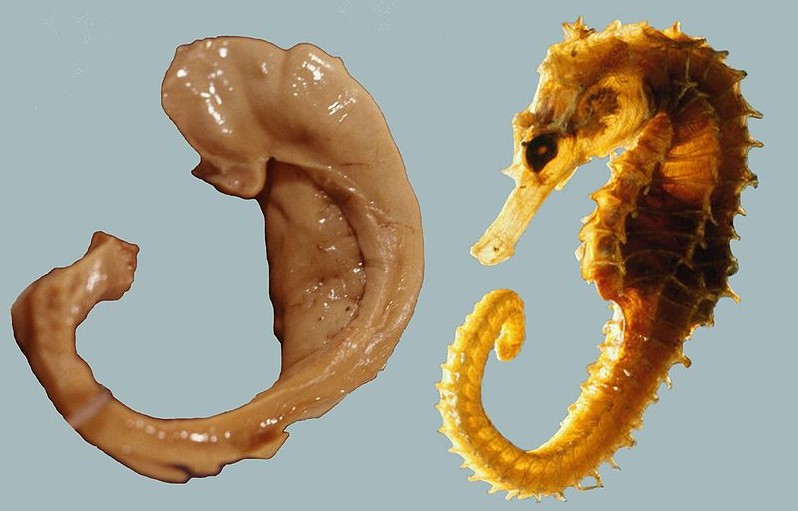
Hippocampus is required for the formation and recall, but not the storage of memories. It’s more like the memory processing center. Sleep is essential for the consolidation of a memory, so perhaps that’s why the Hippocampus “shuts down”/changes functions right away. Memory is essential for survival (sabertooth tiger near pond, Mate has brown eyes and dimples, don’t use three-leaf clusters on single stem as toilet paper), so it makes sense that this organ gets to work immediately. When we “go under,” it is believed the hippocampus switches from short-term to long-term memory focus (hence the short-term memory loss) replaying the events of the day for the neo-cortex (where long memories are stored) by reviewing and processing these memories.
I’m no scientist, but I wonder if, since memory is so complex and essential to survival, being asleep is the only way for us to deeply encode what has happened to us. And since this deeply-encoding process is so complicated and difficult, we can’t be conscious for it, since our consciousness would get in the way/take away energy/focus from the hippocampus. Reality is so complex and ever-changing that every night the Hippocampus needs to shout: “Alright everybody, chill the fuck out, relax, I gotta figure out what just happened today so the captain upstairs can get a new job.”
Keep in mind (pun intended) that the number of neurons in the adult brain (around 100 billion…coincidentally, the same number of stars in our galaxy and the same number of galaxies in the universe) does not increase significantly with age.
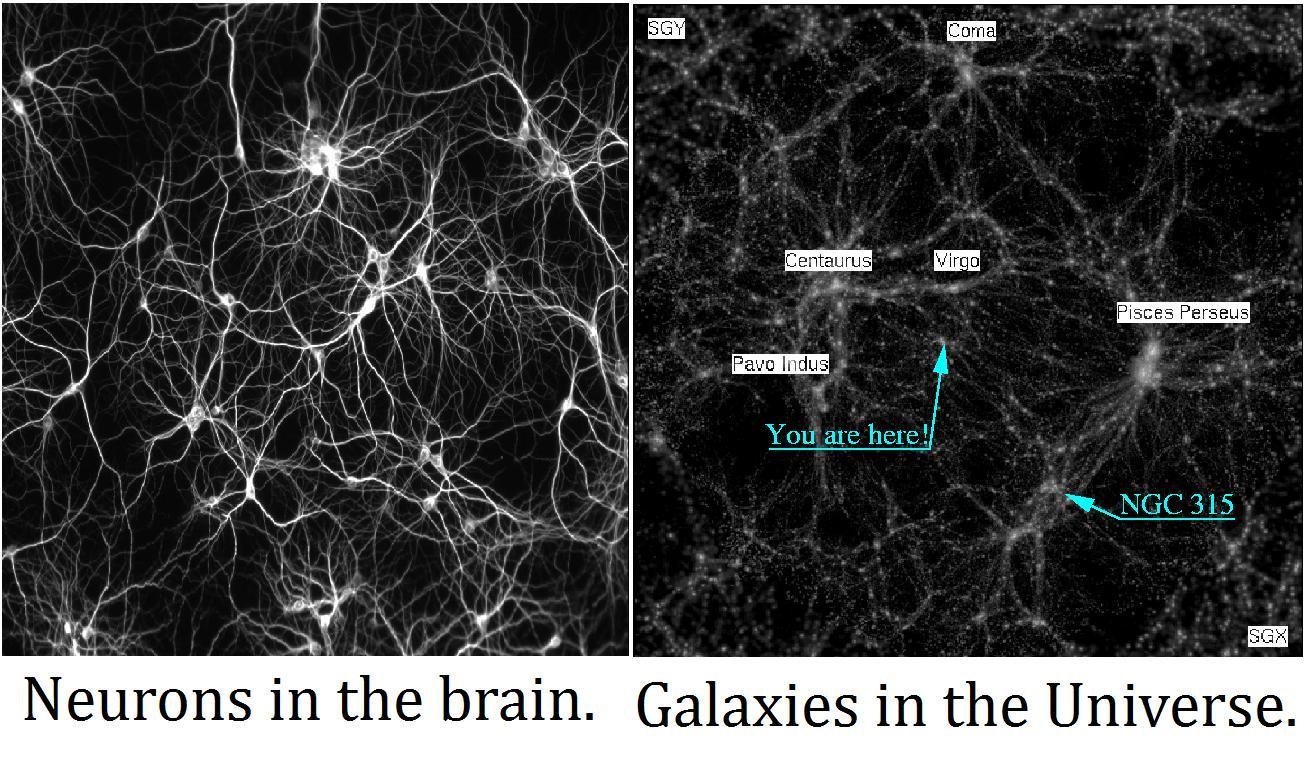
In fact, if we hit our head with a fist, a couple of neurons are “killed.” This means memories are not the result of new neuron production. What’s happening is long-term potentiation (LTP). LTP is the persistent increase in synaptic strength following high-frequency stimulation of a chemical synapse/recent patterns of activity. Here’s a diagram:
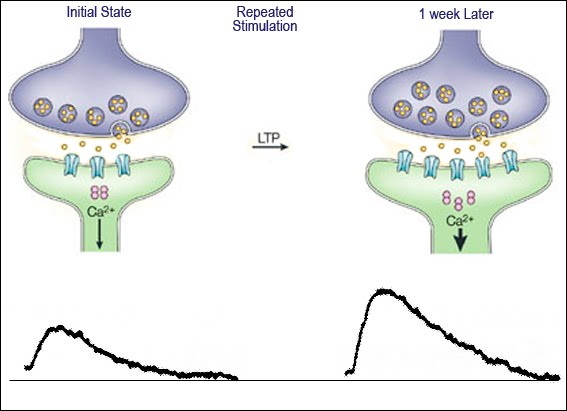
Memories are thought to be deeply encoded by modification of synaptic strength. I forgot what this has to do with my original question, but I think it’s just a good thing to know. Wait, did I already answer my original question? I think I did. I’ll have to read this over. Anyway, here’s a goodbye, warm-and-fuzzy gif:
Subscribe below. Thank you:

